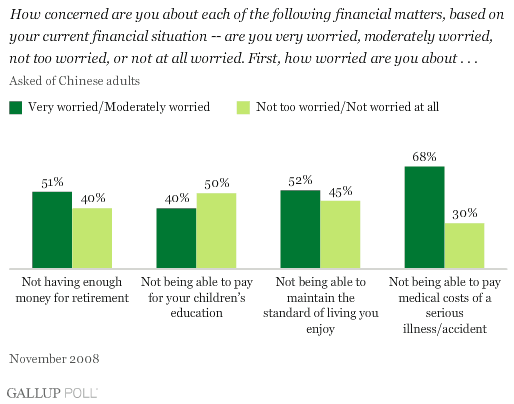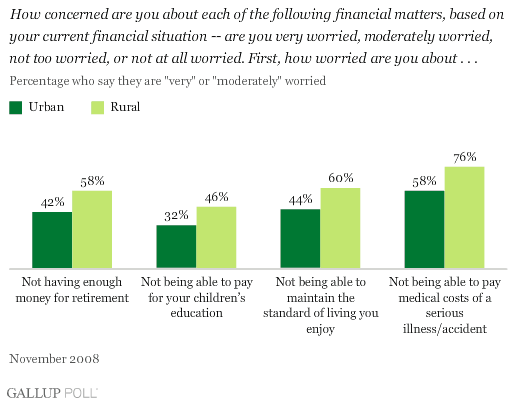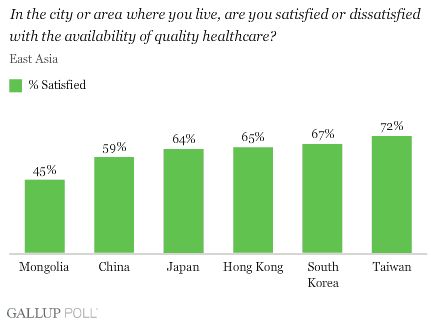WASHINGTON, D.C. -- China's announcement of major health reforms this month is likely welcome news for many Chinese who fear a serious illness could drain their life's savings. A November 2008 Gallup Poll showed Chinese worry more about having enough money to pay medical costs than they do about having enough for retirement, their children's education, or to maintain their living standards.

While the plan's details are still emerging, the government aims to provide basic health coverage and insurance to more than 90% of the country's 1.3 billion citizens and build thousands of hospitals and clinics in the next three years. According to the Xinhua news agency, by 2020, China's basic healthcare system will be able to provide "safe, effective, convenient, and affordable health services" to all urban and rural residents.
State insurance plans will cover more medical expenses over time, but in the near-term, high out-of-pocket health costs that have beleaguered Chinese consumers will remain. Average residents currently pay at least half of their medical fees. Poor coverage, in tandem with soaring costs, has forced consumers to save for care or forgo it. In Gallup's 2006 survey in China, saving for sickness or injury (64%) and retirement (63%) were residents' top reported savings goals.
While more than two in three Chinese in 2008 said they are very (31%) or moderately (37%) worried about being unable to pay medical costs for a serious illness, this fear is most acute among rural Chinese, who make up a majority of the country's population. Rural Chinese were generally more likely than urban Chinese to worry about each of the financial matters tested, and slightly more than three in four (76%) expressed worry about paying medical costs.

Availability of quality care, particularly in rural areas, is another challenge the government is attempting to tackle through its reform. In addition to constructing 29,000 township hospitals and upgrading 5,000 others, the government aims to ensure every Chinese village has a clinic in the next three years. China also pledged to train more than 1 million village and community doctors.
Whether such measures will improve residents' views of their local services remains to be seen. Nearly 6 in 10 Chinese (59%) told Gallup they are satisfied with the availability of quality healthcare in their communities, but across East Asia, only Mongolians are less satisfied (45%).

Bottom Line
Above all other financial matters, healthcare costs troubled Chinese most when Gallup surveyed them in November, and their worries have likely only intensified in the current global economic climate. China's much-anticipated health reform may deliver a much-needed boost to the country's economy and encourage sustainable growth. The lack of an adequate social safety net has been driving Chinese consumers to save when their government needs thems to spend. Perhaps one of the biggest challenges for China's government, aside from implementing its plans, will be convincing consumers the net is big enough to catch them.
Survey Methods
Results are based on face-to-face and telephone interviews with approximately 4,383 adults, aged 15 and older, conducted in November 2008 in China. For results based on the total sample of Chinese adults, one can say with 95% confidence that the maximum margin of sampling error is ±2.2 percentage points. Surveys conducted in Mongolia, Japan, Hong Kong, South Korea, and Taiwan between September and December 2008, with maximum margin of sampling error ranging between ±3.6 and ±4.3 percentage points. In addition to sampling error, question wording and practical difficulties in conducting surveys can introduce error or bias into the findings of public opinion polls.
